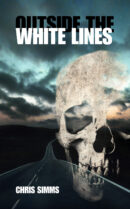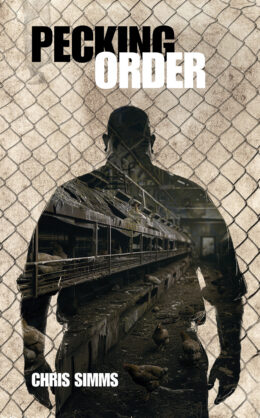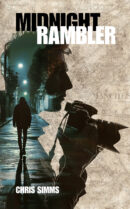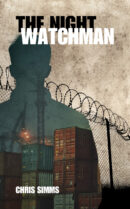Rubble lives in a caravan and works on a battery farm.Totally oblivious to the outside world, he spends his days disposing of the sick and injured chickens. But all the while he dreams of a life in the army – despite the fact his numerous applications have been rejected.
Then one day a mysterious visitor arrives and sees Rubble’s child-like naivety combined with an ability to kill without compunction. Soon Rubble is employed on a sinister secret project.
Rubble’s only chance of realising how he’s being cruelly used lies with the one person he confides in: a fortune-teller working on a premium rate telephone line. But just how disturbing must her caller’s revelations become before she is prepared to take action?
This chilling thriller explores the darkest reaches of human psychology: that which drives one person to kill another.
Large parts of this novel came from when, as a teenager, I got a job on a battery farm one summer holiday. I’ve had many crappy jobs during my life; but this was by far the worst. By lunchtime I’d had enough – and walked out. I may not have got paid, but I was one sickening experience all the richer.
That morning’s events obviously stuck with me and, years later, came in very useful when I started pondering an article I had read. It described how, if people believe the authority of the state is behind them, they are prepared to perpetrate the most cruel and sadistic acts on their fellow humans. (Think of recent cases of American prison staff torturing inmates in Iraqi prisons.)
I’d seen some cruel and sadistic people working at the battery farm – and I realised it would make a great location for someone who needed to recruit a potential killer.
All sorts of other ideas gradually wove themselves into the plot – including the precariousness of so many people’s jobs in corporate Britain, care of the elderly and voluntary euthanasia. (Plus the potential link between all three issues.)
But it is the character from the battery farm, plucked from his mind-numbing job and duped into believing he’s on a covert mission for the state, who carries the story forward to its dark and violent ending.
 Outside the White Lines
Outside the White Lines

 Midnight Rambler
Midnight Rambler The Night Watchman
The Night Watchman